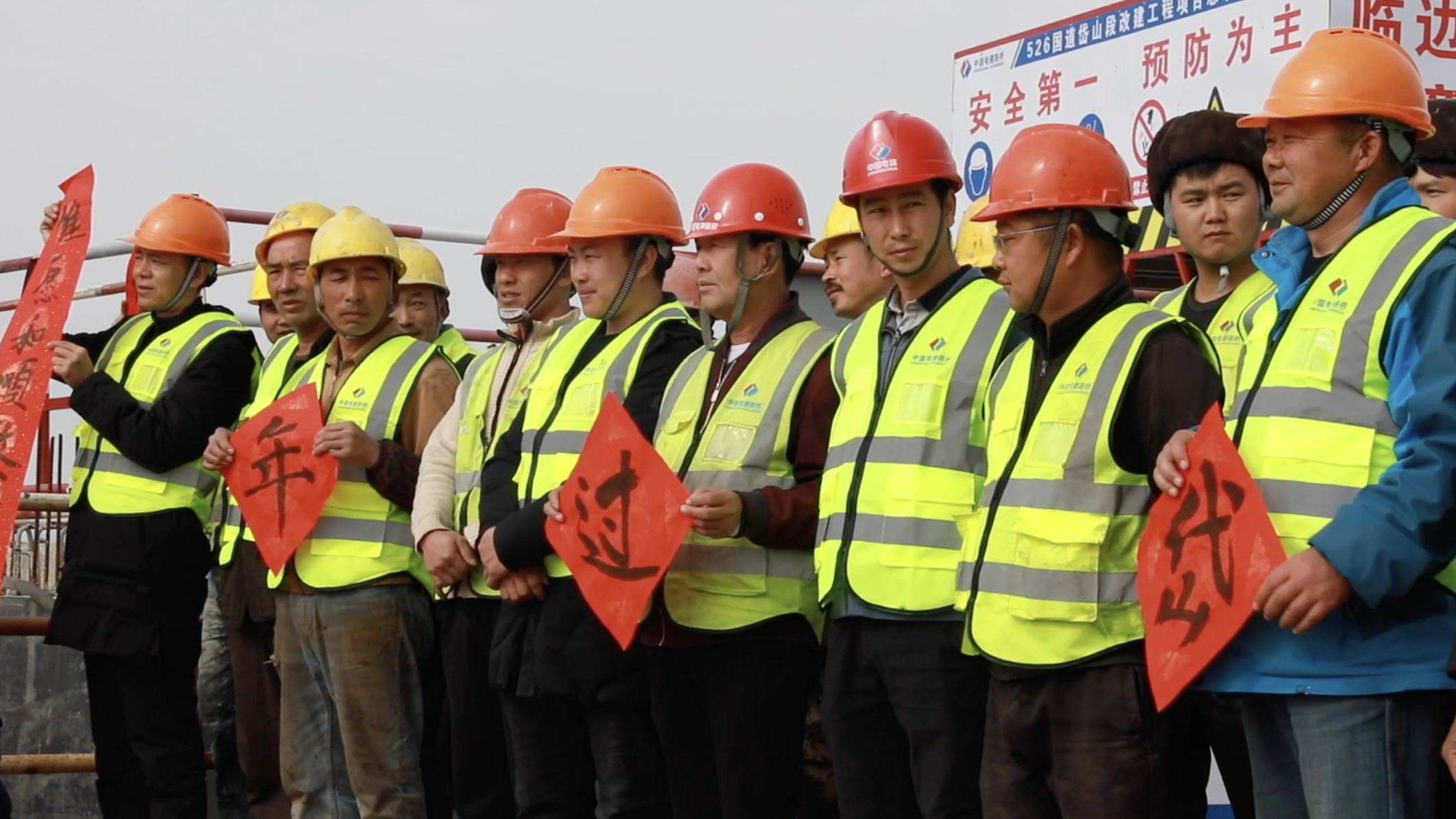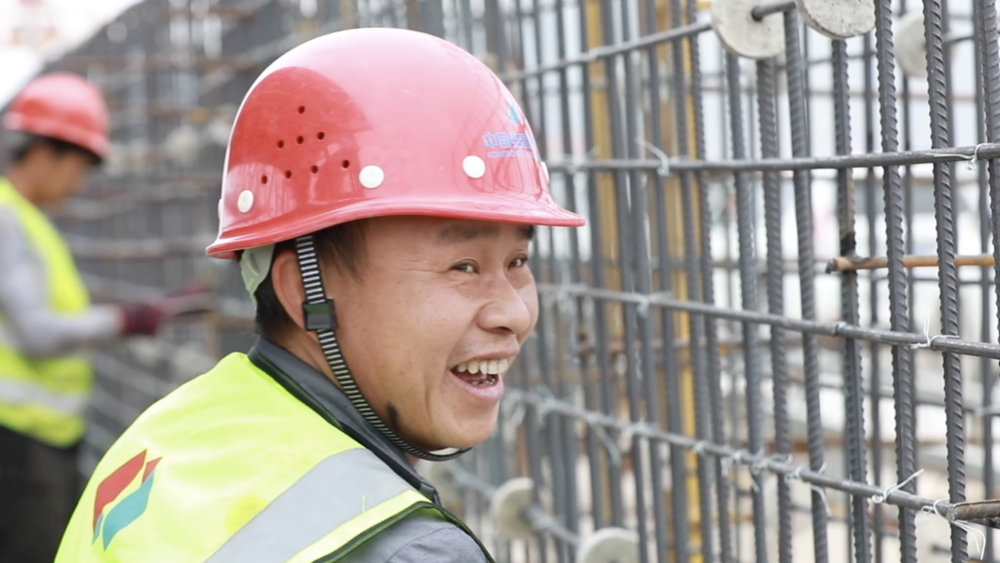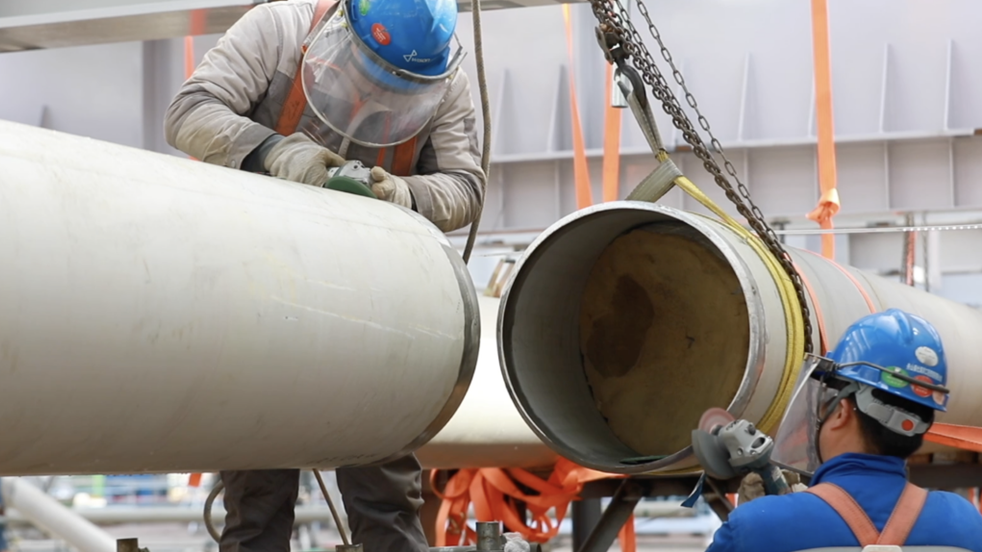03:11

There are around two weeks to go before the Lunar New Year or China's Spring Festival, a time when most Chinese people return home to reunite with their families. But the pandemic is likely to force many to stay put where they work this year as pre-holiday pandemic outbreaks took place in multiple Chinese cities.
It is estimated that 1.7 billion trips will be made during this year's Spring Festival travel rush, 40 percent lower than that of 2019 and 10 percent higher than 2020, according to the Chinese Ministry of Transport.
Authorities in various Chinese cities are proposing financial incentives, encouraging people to cancel their trips to return home during the holiday. Those who choose to stay put are rewarded with money (the amount depends on where they work), vouchers, and other miscellaneous benefits.
Daishan County in Zhoushan City, east China's Zhejiang Province, has been one of the first few places that introduced such a policy. With fishery, cross-sea bridge construction, and other heavy industries as its economic underpinning, nearly half of the town's population is migrant workers.
This year, about half of the migrant population is staying where they work for the Lunar New Year, according to the local Workers' Union.
"We are opening new facilities for them and preparing some entertainment activities that the migrant workers may like," said Xu Li, Vice President of Daishan Workers' Union.
When asked how he felt about not going home for a family reunion this year, Lin Jianye, a migrant worker on the construction site, told CGTN that he is staying because his company has held multiple meetings, persuading them not to travel.
"Of course, I miss my home, and I want to go back. We had several meetings, telling us about the government's new policies about returning home this year. They're encouraging us to stay. You know, I have a family to raise," said Lin.

Lin Jianye, a migrant worker in east China's Daishan, stays for the Lunar New Year. /CGTN
Lin Jianye, a migrant worker in east China's Daishan, stays for the Lunar New Year. /CGTN
"I would personally stay back this time to work on the project."
It is not only Chinese people who are staying put. Tan Tien Kwei is from Singapore, where the Spring Festival is also observed, and he cannot go home to reunite with his family either.
"I celebrate the Chinese New Year with my family every year since I was young. Even after I started to work in China, I used to go back," said Tan. "For myself, because of the hectic schedule of the project, I would personally stay back this time to work on the project."
Wison, the company that Tan works with, has been halfway through a liquid natural gas pipeline project for Russia. With the deadline for delivery approaching, workers are advised to stay.
The company currently has about 4,000 workers, and whoever stays during the Lunar New Year is being paid about $2,000, which is multiple times higher than many other companies could offer.
"First, the project has a strict deadline, and we are not allowed to postpone its completion. Second, as we all know, the pandemic is complicating the situation. So if we don't keep the numbers here, we may not have enough workforce after the new year if anything happens," said Wang Wei, Deputy Manager of Wison's Construction Department.

Migrant Workers at Wison are each paid about $2,000 to stay during the Chinese Lunar New Year holiday. /CGTN
Migrant Workers at Wison are each paid about $2,000 to stay during the Chinese Lunar New Year holiday. /CGTN
What is Spring Festival Travel Rush?
The Spring Festival Travel Rush, known as chunyun in Chinese, refers to a period of travel with a high traffic load around the time of the Chinese Lunar New Year, which usually falls in January or February in the solar calendar.
The period on average, lasts around 40 days. It has been called the largest human migration in the world. In particular, it was estimated 2.98 billion trips were made during the season in 2019, according to the Chinese Ministry of Transport.
Three reasons contributing to the Spring Festival Travel Rush were thought to include: a tradition for the Chinese to reunite with their families during the Lunar New Year, uneven economic development which results in migration to developed regions for job opportunities, and the Spring Festival Period being one of the longest national holidays in China, which lasts seven days.
For the 2021 Spring Festival holiday, stringent policies have been imposed to curb the spread of COVID-19. People residing in high-risk areas, or those who have traveled to these areas within 14 days, are asked to stay where they are. People living in medium-risk areas, or those who have traveled to these areas within 14 days, are advised not to travel; Those from low-risk areas are required to present negative nucleic acid tests when traveling. Upon arrival, they are subject to local government health guidelines.

